Read & Play at Home: Empowering Parents, Sparking Literacy at Home
14 Aug 2025
Since 2022, the Read and Play at Home programme has reached over 12,000 parents and caregivers across Nkomazi in Mpumalanga, Worcester in the Western Cap) and oPhongolo in KwaZulu‑Natal through partnerships with Book Dash, Lulamaphiko, ITEC and sponsored by MySchool.
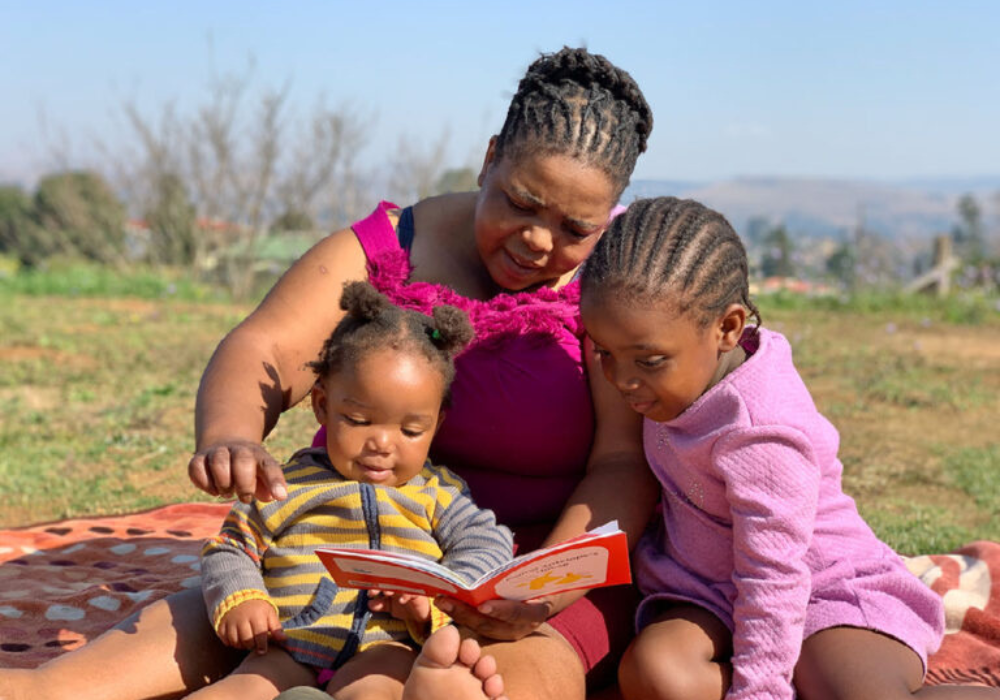
What is Read and Play at Home?
This is a collaborative, community‑based programme that equips parents and caregivers with the confidence, tools and books needed to build reading routines and playful interactions at home. Across structured parent workshops, families take away:
- Three Book Dash picture books (two in their home language, one wordless to inspire storytelling).
- Training on why and how reading and play support early learning—emphasizing language skills, cultural identity, and bonding.
- Ongoing support, including follow‑ups and focus groups for real‑time feedback and sustained engagement.
This dual approach—material provision + behaviour‑change guidance—is grounded in the idea that parents are their children’s first teachers, a cornerstone of family literacy approaches globally.
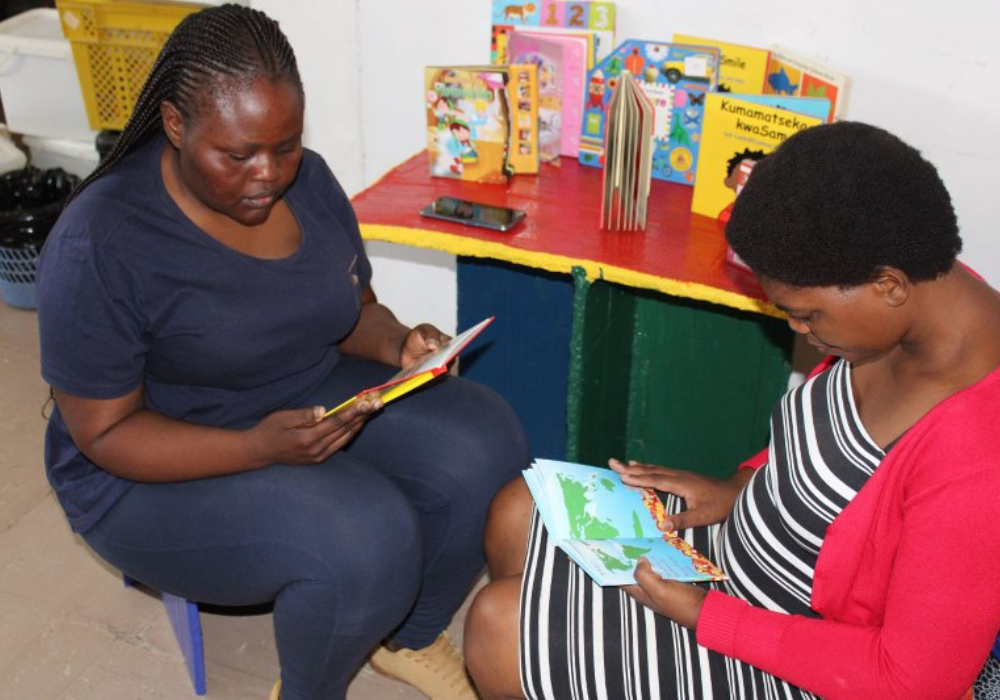
In Nkomazi, Read and Play at Home has empowered over 2,235 parents to start reading corners at home, with a target of reaching an additional 1,574 parents by end-2024.
Similar roll-out in Worcester (~2,100 parents) and Pongola (~2,451 parents) shows growing scale and demand.
Why It Matters in Caregiver Support
Addressing the Literacy Crisis
South Africa faces urgent need: 81% of Grade 4 learners cannot read for meaning, with household book access extremely limited (UNICEF found 43% of homes had no books at all) . Read and Play at Home directly addresses this by providing both books and skills to engage with them at home, long before formal schooling begins.
Centering Culture, Identity and Language
Books in parents’ primary or secondary languages and stories rooted in local contexts help children connect deeply to their heritage and build empathy, identity and belonging alongside literacy skills . As Jabu Mthembu-Dlamini reflects, culturally relevant stories “strengthen identity, empathy and academic success”.
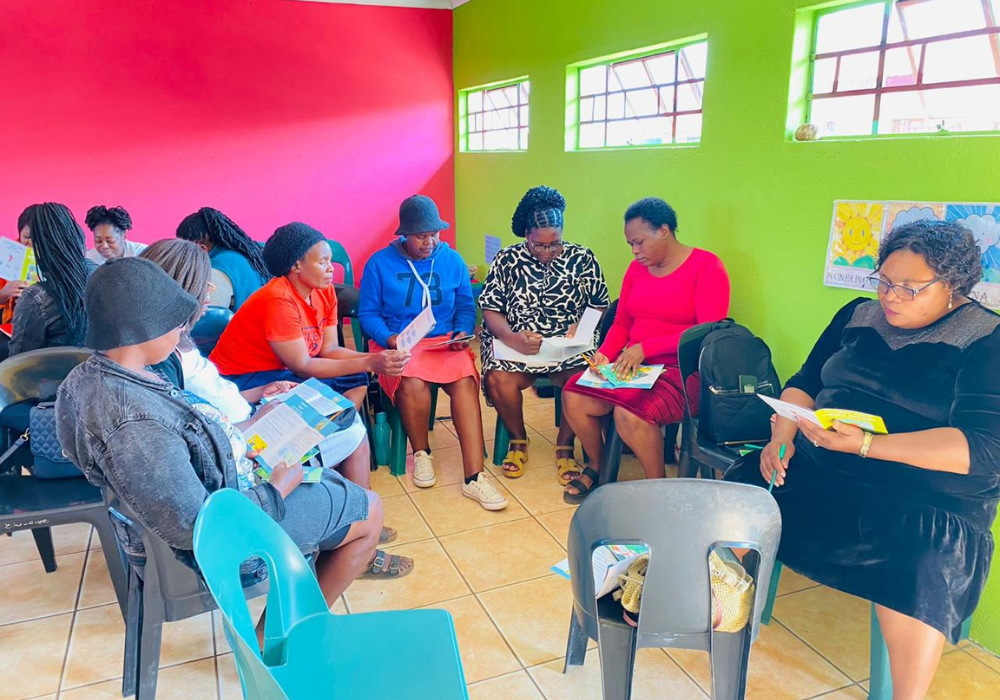
Building Stronger Parent‑ECD Partnerships
By involving ECD practitioners in workshops and encouraging home‑ECD centre alignment, the model fosters trust and shared responsibility for a child’s learning journey. Parents report heightened engagement in classroom activities, while children show more enthusiasm toward reading and learning.
Leveraging Play-based Learning
Integrated into reading is playful storytelling, letting children manipulate images, invent dialogue, and explore the story actively. This combines with known cognitive benefits of play—problem solving, vocabulary acquisition, social & emotional development.
Key Lessons and Emerging Best Practices
Material + Behaviour Change = Impact: Books alone aren’t enough. Pairing them with parent workshops and ongoing support fosters behaviour change and sustained reading habits at home.
Local Language and Relevance Matters: Providing books in a child’s home language and featuring everyday local stories increases engagement and relatability. Parents and children bond over familiar content, boosting reading time and conversation.
Playful Learning Deepens Engagement: Encouraging storytelling through wordless books or reenactment makes reading interactive and joyful—promoting emergent literacy, which research shows is best built through play-based methods.
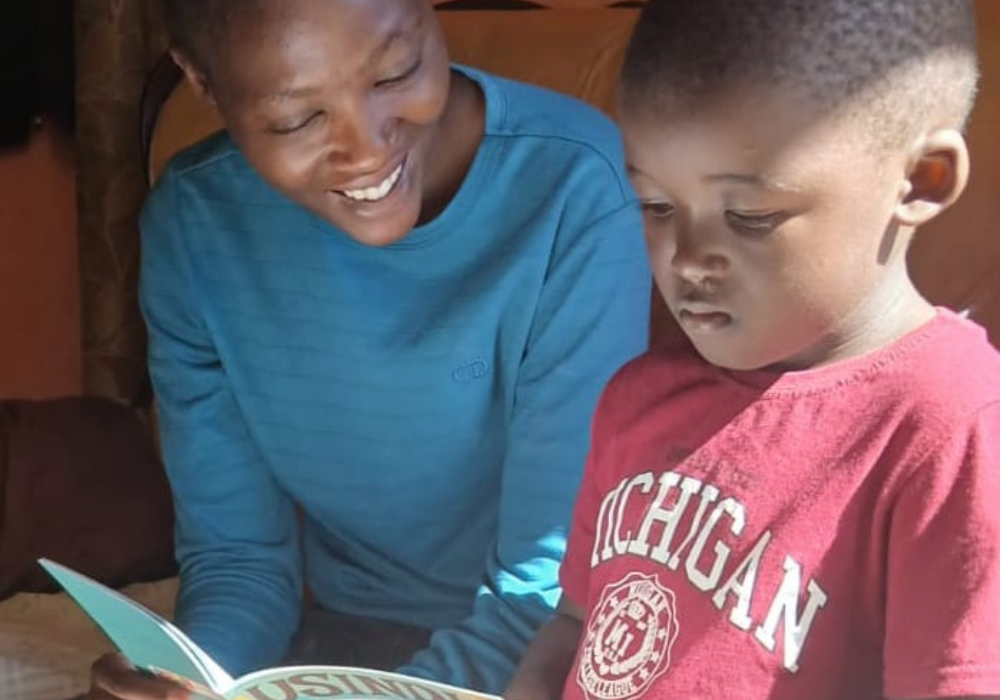
Parent as Coach: Empowerment Approach: Workshops position parents not as observers but as active educators—investing them with knowledge on early literacy benefits and hands-on methods to turn routines into developmental learning experiences.
Focus Group Feedback Drives Iteration: Regular parent feedback loops help the programme remain responsive—highlighting challenges, preferences, and helping tailor support for different contexts.
Scalability via Partnerships: Working with Book Dash, MySchool, Lulamaphiko and ITEC provides a template for scaling: combining resource generation, language and culture expertise, and regionally based implementation.
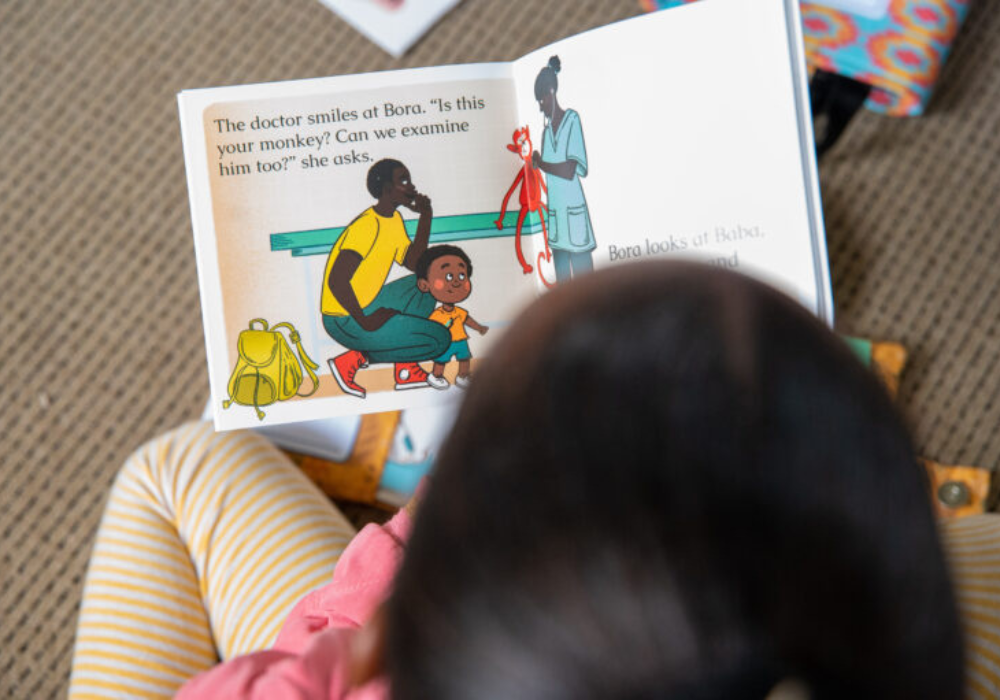
Wider Significance and Cascading Impact
This programme illustrates how equipping caregivers at home can serve as a preventative foundation in bridging South Africa’s early literacy gap. Broader benefits include:
Stronger parent‑child bonds: Parents report deeper communication, shared curiosity and daily connection through stories.
School readiness: Children enter school with larger vocabularies, comprehension skills, and familiarity with book handling and storytelling foundation.
Community-wide shift in reading culture: When multiple households in a community engage in reading routines, narrative language and literacy become normalized and valued.
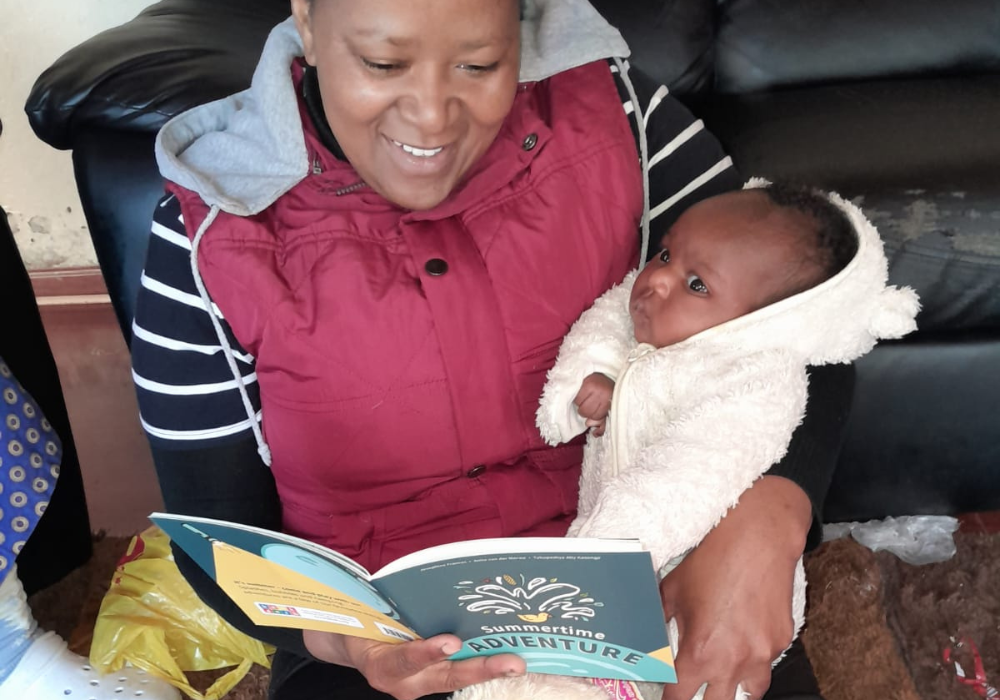
Moving Forward: Considerations & Next Steps
Targeted Expansion: Roll out into remaining DO MORE communities, with deliberate partnerships to support materials, translation, training and logistics.
Tracking outcomes: Include basic measures such as frequency of reading at home, parent confidence, and child language milestones to quantify impact.
Contextual tailoring: Continue to adapt languages, examples and session styles to suit each community’s linguistic and cultural context.
Integrating literacy into broader caregiver programming: Embed Read and Play at Home into broader curricula like EAT LOVE PLAY TALK, reinforcing holistic caregiver support across nutrition, attachment, play and language.
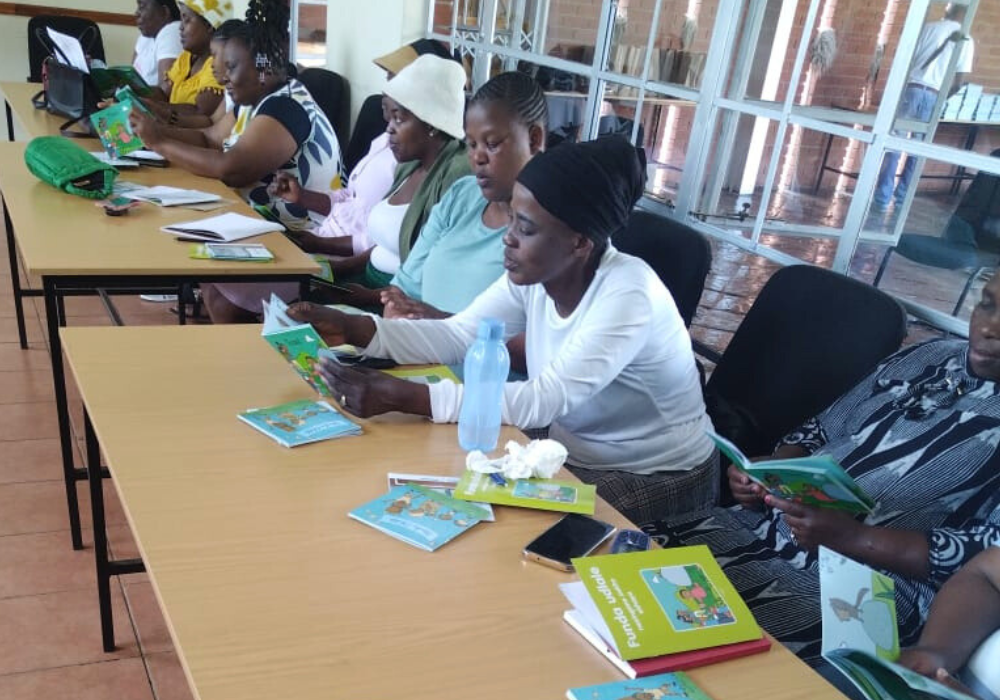
Read and Play at Home shows how strategic, culturally grounded and parent‑centred programmes can ignite a culture of reading, play and learning in households. It positions caregivers not only as supporters but as empowered facilitators of their child’s early literacy.
When parents receive the resources, training and ongoing encouragement they need, the outcomes ripple far: stronger bonds, richer language foundations, readiness for school, and communities that celebrate storytelling as a vital part of identity and growth.
These are lessons worth carrying forward for every community DO MORE touches.